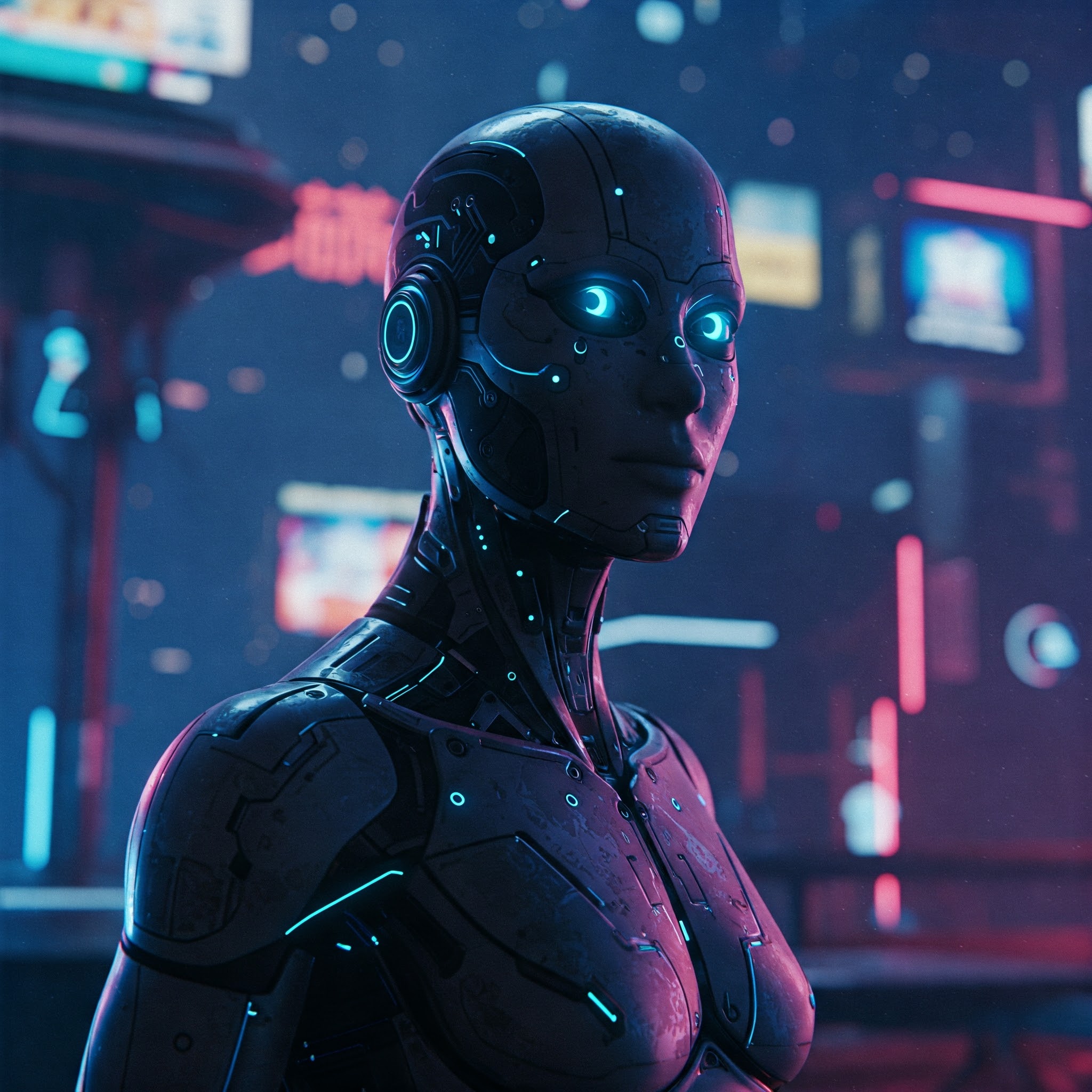Launched: March 25, 2025
Artificial intelligence (AI) is significantly impacting game development in 2025, with over 30% of developers using Generative AI tools. This indicates that AI is moving beyond experimentation and becoming a practical part of many development workflows. In fact, more than half of surveyed developers (52%) work for companies that have implemented generative AI. Unity’s 2025 Gaming Report even shows a higher adoption rate, with 96% of surveyed studios integrating AI tools into their workflows.
AI is being applied in various areas, offering benefits such as enhanced efficiency, cost reduction, and personalized player experiences. These applications include:
- Intelligent NPCs: AI agents are enabling NPCs to exhibit more complex and human-like behaviors, responding dynamically to player choices. NVIDIA’s ACE technology, powering “Smart Zoi” NPCs in the game inZOI, is a prime example.
- Procedural Content Generation: AI algorithms are generating vast game worlds, characters, and quests, enhancing replayability and reducing development workloads. Games like No Man’s Sky and Minecraft exemplify this. In 2025, companies like Capcom are using Google Cloud AI for item and environment creation.
- Game Testing and Quality Assurance: AI tools are streamlining testing and debugging, with startups like nunu.AI using advanced AI models to automatically test games throughout development.
- Animation and Rigging: AI-powered rendering techniques are improving graphics and performance. Unity and Unreal Engine are incorporating AI for animation and texture generation.
- Audio Design and Music Generation: Companies like ElevenLabs are using AI to create realistic character voices, translate dialogue, and generate unique sound effects.
- Player Behavior Analysis and Personalization: AI algorithms analyze player behavior to create personalized gaming experiences, recommending customized content and dynamically balancing difficulty.
Arguments for AI as a revolution highlight its potential to enhance efficiency and reduce costs, create dynamic and personalized experiences, and unlock new creative horizons. Data suggests that 39% of studios using AI report productivity gains exceeding 20%, and 25% have experienced similar cost savings.
However, concerns exist regarding technological limitations and content quality, with developers expressing discontent with AI-generated content. Socio-economic impacts, particularly potential job displacement, and ethical and intellectual property issues are also significant concerns.
Industry perspectives are mixed. While nearly 80% of developers express a positive outlook on AI, 30% believe generative AI is negatively impacting the industry. This negative sentiment has increased from the previous year.
Controversies surround the ethical implications of AI-generated content, the replication of human creativity, job displacement, and the balance between player satisfaction and monetization.
Looking beyond 2025, AI is expected to become even more integrated, making games more dynamic and personalized. Industry speculation suggests AI could drive over half of the game development process within the next 5 to 10 years, though concrete predictions remain uncertain without specific studies.
Conclusion: In 2025, AI appears to be a powerful and rapidly evolving tool augmenting human creativity and streamlining workflows rather than entirely replacing human roles. The long-term impact will depend on the industry’s ability to navigate ethical challenges and ensure responsible implementation.
References:
- [13, 14, 15, 19, 51, 65, 67, 68, 72] GDC 2025 State of the Game Industry, accessed March 20, 2025, https://gdconf.com/gdc-2025-state-game-industry
- [15, 34, 65, 67, 68, 69, 70, 71] How Devs are Adapting in 2025: Unity Gaming Report is Here, accessed March 19, 2025, https://unity.com/blog/2025-unity-gaming-report-launch
- [20, 37, 39, 57, 69, 74] Gaming in 2025 | Google Cloud Blog, accessed March 20, 2025, https://cloud.google.com/transform/2025-the-year-ai-levels-up-the-gaming-industry-gen-ai
- [24, 69] The Evolution of AI Agents in Gaming: Insights and Trends in 2025, accessed March 20, 2025, https://aiagentsdirectory.com/blog/ai-agents-in-gaming-transforming-the-industry-in-2025
- [25, 30, 69] NVIDIA Reveals Neural Rendering, AI Advancements at GDC 2025 …, accessed March 20, 2025, https://blogs.nvidia.com/blog/gdc-2025-ai-neural-rendering-game-development/
- [27, 31, 69] Living games are here: How gen AI is leveling up the games industry – Google Blog, accessed March 20, 2025, https://blog.google/products/google-cloud/generative-ai-video-games/
- [29, 33, 36, 38, 41, 69] Trends in the Gaming Industry: The Future of Gaming in 2025 and Beyond, accessed March 19, 2025, https://www.sustainablebusinesstoolkit.com/trends-in-the-gaming-industry/
- [28, 42, 47, 52, 69] AI in Game Development: A Deep Dive into the Game Dev Trends in 2025 – Blog – Meshy AI, accessed March 20, 2025, https://www.meshy.ai/blog/ai-game-development
- [32, 35, 40, 44, 46, 48, 50, 53, 55, 58, 59, 60, 61, 62, 63, 64, 66] The Impact Of AI on Video Game Development in 2025 – GameSpace.com, accessed March 20, 2025, https://www.gamespace.com/all-articles/news/the-impact-of-ai-on-video-game-development-in-2025/
- [33, 37, 45, 49, 54, 56, 70] The way gamers feel about AI in the industry is surprising – and this is their biggest concern, accessed March 20, 2025, https://www.indy100.com/gaming/ai-gaming-video-games-developers-actors-sag-aftra-strike
- [39, 43, 70] Machine Learning and AI in Game Development in 2025 – Analytics Vidhya, accessed March 20, 2025, https://www.analyticsvidhya.com/blog/2023/03/ml-and-ai-in-game-development/
- [41, 70] 3 Gaming Trends for 2025 Influenced by Live Service Games – Servers.com, accessed March 19, 2025, https://www.servers.com/news/blog/gaming-trends-and-predictions
- [44, 47, 71] Game Development Trends You Absolutely Must Not Miss in 2025 | Melior Games, accessed March 19, 2025, https://meliorgames.com/best-practices/game-development-trends-you-absolutely-must-not-miss-in-2025/
- [52, 73] Sep 16 AI x Game Industry in 2025 – The Unspoken Part – Deconstructor of Fun, accessed March 20, 2025, https://www.deconstructoroffun.com/blog/2024/9/16/ai-x-game-industry-in-2025-the-unspoken-part
- [52, 73] GDC’s annual State of the Game Industry survey reveals 1/3 of ‘triple-A developers’ are working on live service games | PC Gamer, accessed March 19, 2025, https://www.pcgamer.com/gaming-industry/gdcs-annual-state-of-the-game-industry-survey-reveals-1-3-of-triple-a-developers-are-working-on-live-service-games/
- [55, 74] Games industry in 2025 | Google Cloud Blog, accessed March 20, 2025, https://cloud.google.com/transform/2025-the-year-ai-levels-up-the-games-industry-gen-ai
- [75] 5 talking points about the state of games in 2025 | GamesRadar+, accessed March 20, 2025, https://www.gamesradar.com/games/5-talking-points-about-the-state-of-games-in-2025/
- [75] How AI is Changing Gaming Tech in 2025 – Enablis Consulting Ltd, accessed March 20, 2025, https://enablis.co/resource/how-ai-is-changing-gaming-tech-in-2025/
Need More? Video Drop TBA!
Change Log
- March 25, 2025 – Article launched.

